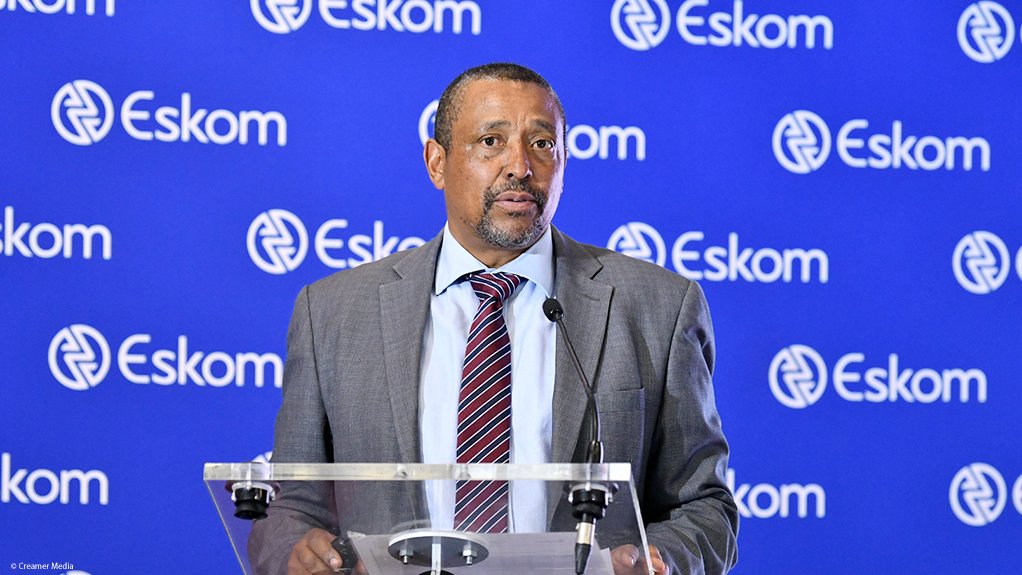The National Energy Regulator of South Africa (Nersa) has published State-owned utility Eskom’s proposed Retail Tariff Plan for public consultation, detailing changes to its tariff charges and rates.
The primary goal is to ensure customers only pay for the costs they incur, Eskom says in a statement.
“The proposed tariff changes aim to support an evolving electricity supply industry, ensuring that electricity tariffs reflect Nersa-approved costs for generation, transmission and distribution services, while considering affordability, fairness, and transparency,” Eskom states.
Major structural changes proposed by Eskom to the retail tariffs are outlined below.
Currently, residential households on prepaid and post-paid pay more per unit as they buy more electricity during the month, owing to the inclining block tariff (IBT).
Eskom is proposing to remove the IBT so that low-use households pay the same price regardless of how many times electricity is bought in a single month. Eskom says this will support affordability and provide greater access to energy services.
Customers with rooftop solar PV connected to the grid who use Eskom-supplied energy as a backup, known as the “Eskom battery”, on cloudy days, at night and during the morning and evening peak, will still be required to pay for using the Eskom network.
Customers with the technology to export any own-generated excess energy onto the grid can further reduce their electricity bill through energy credits to their electricity bills, Eskom highlights.
The entity posits that tariffs for municipal distributors buying in bulk are likely to benefit on average from lower costs owing to lower subsidy contributions and reduced fixed charges through consolidating their 15 tariffs into three options.
Large industry, mining, commercial and rural customers would see an overall reduction in fixed charges and winter energy time-of-use prices, Eskom says.
Services charges for large industry, mining and commercial users that consume significant quantities of baseload power will in future be calculated on each point of supply.
Eskom says that this ensures fairness and better reflects the resources required to manage multiple points of electricity delivery (PoD) at large industrial and mining sites.
The application does not include customers who have completely disconnected from Eskom’s grid and have no Eskom connection or meter.
Unbundled tariffs would enable Eskom to recover Nersa-approved costs and returns by aligning prices and tariff rates with the actual costs incurred, the entity avers.
It warns that insufficiently unbundled tariffs pose revenue risks for the licensee and unfairly increase tariffs for all customers.
“Properly unbundling and structuring tariffs will ensure fair cost recovery, avoid unfair cross-subsidies, and support the responsible integration of alternative energy sources,” Eskom says.
It highlights this application as a “crucial step” towards fully unbundled tariffs, which will have separate charges for electricity capacity usage and network services.
“This approach will accurately reflect the costs of providing electricity services and enhance transparency for customers,” Eskom says.
“The electricity supply industry is undergoing fundamental changes that will set the course for economic growth and prosperity in the years ahead. It is, therefore, vital that as many stakeholders as possible engage with Nersa on the proposed changes to support the determination of tariffs that are as fair as possible for all customers,” Eskom Distribution group executive Monde Bala says.
“The proposed tariff changes aim to restructure existing tariffs and avoid the creation of unintended subsidies. It is important to note that the tariff restructuring process is separate from Eskom’s current revenue application to Nersa for the 2025 to 2028 period under the Multi-Year Price Determination 6 process.
“Eskom will not generate additional revenue from the proposed tariff restructuring but will rebalance the charges while remaining within the 2024/2025 costs already approved by Nersa,” Bala adds.
This application follows similar submissions made to Nersa in 2020 and 2022.
However, except for the introduction of the Homeflex tariff, a residential tariff that enables grid connection and energy export for solar PV customers in 2022, none of the previous submissions were approved, Eskom points out.
The Retail Tariff Plan and the customer impact tool can be accessed at www.eskom.co.zatariffs.
Eskom’s Retail Tariff Plan inviting comments from members of the public can be found on the Nersa website: https://www.nersa.org.za/electricity-overview/electricity-consultation/.
Members of the public are urged to take part in the public hearings where Eskom will openly respond to all questions on the proposed tariff structure.
EMAIL THIS ARTICLE SAVE THIS ARTICLE ARTICLE ENQUIRY
To subscribe email subscriptions@creamermedia.co.za or click here
To advertise email advertising@creamermedia.co.za or click here











